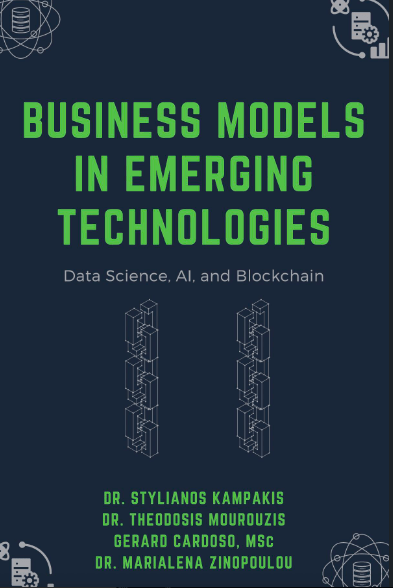To become a successful data scientist, you need to possess a range of technical and non-technical skills. In this edition i’ll be covering this topic. Additionally, further down you can also find a podcast and report on ChatGPT as well as an article on how AI can help decrease diversity biases in recruitment.
To become a successful data scientist here are some of the key skills that you should aim to develop:
- Strong foundation in mathematics and statistics: Data science is heavily rooted in mathematical and statistical concepts. Understanding calculus, linear algebra, probability, and statistics is critical for data scientists to build effective models and make data-driven decisions.
- Proficiency in programming languages: Data scientists need to be proficient in programming languages like Python, R, and SQL.
- Familiarity with machine learning algorithms: Data scientists need to be familiar with a range of algorithms such as decision trees, logistic regression, and neural networks to build predictive models.
- Data wrangling and cleaning: Most of the time, raw data is messy and needs to be cleaned and transformed before it can be analyzed. Data scientists should be able to handle missing values, outliers, and inconsistent data.
- Data visualization and communication: Data scientists should be able to communicate insights to stakeholders effectively. Data visualization is a powerful tool to present data in an understandable and actionable format.
- Domain knowledge: It is essential for data scientists to have domain knowledge of the industry they are working in. It helps them to ask relevant questions, build better models, and derive more valuable insights from the data.
- Problem-solving skills: Data scientists need to be able to identify the right questions to ask, formulate hypotheses, and design experiments to test them.
- Continuous learning: Data science is a rapidly evolving field, and new tools and techniques emerge all the time. Data scientists should be willing to keep up with the latest developments and continuously learn new skills.
However, there are several reasons why data science learners may fail to achieve their goals. Here are some of the most common reasons:
- Lack of foundational knowledge: Data science involves complex mathematical and statistical concepts, and without a solid foundation in these areas, learners may struggle to understand the material.
- Inadequate preparation: Data science requires learners to have proficiency in programming languages like Python and R, as well as familiarity with machine learning algorithms. Without adequate preparation, learners may struggle to keep up with the material.
- Poor time management: Data science is a vast field, and learners may struggle to manage their time effectively. It is essential to set realistic goals and stick to a study schedule to avoid becoming overwhelmed.
- Insufficient practice: Data science is a practical field, and learners need to have hands-on experience to master the material. Without sufficient practice, learners may struggle to apply what they have learned in real-world scenarios.
- Lack of motivation: Data science can be challenging and requires a lot of effort and dedication. Without a strong motivation to learn and succeed, learners may struggle to stay focused and engaged.
- Ineffective learning strategies: Everyone has different learning styles, and it is essential to find a learning strategy that works for you. Without an effective learning strategy, learners may struggle to absorb the material and may become frustrated.
- Unrealistic expectations: Data science is a highly competitive field, and it may take time to achieve mastery. Learners may become discouraged if they have unrealistic expectations and do not see immediate results.
Beyond Machine have developed a program to ensure, data science learners and future data scientists don’t face any of the challenges above but instead address them proactively to achieve success in data science. It provides:
⏩ 24/7 coaching and premium 1 to 1 mentoring about all the latest trends and actionable information in data science. You don’t have to spend time trying to find resources on your own
⏩ Learn all the basics of data science in an engaging course to build a solid foundation.
⏩ Help you land your dream data scientist job with preparation for interviews and applying for jobs.
⏩ A satisfaction guarantee if you are not happy.
You can book a FREE call with the team to learn more.
Other News
Book Announcement: Business Models in Emerging Technologies
I am happy to announce that my second book “Business Models in Emerging Technologies” will be co-distributed by Harvard Business Press! It’s great to be recognised for all the effort that me and my co-authors, Theo Mourouzis, PhD, Dr Marialena Zinopoulou and Gerard Cardoso put in this book.

Podcast: ChatGPT and the future of AI with Mark van Rijmenam
Have you ever wondered what the future of AI holds? How will AI be used to transform the way we work and live? Are your intrigued by new innovations such as ChatGPT?
Dr Mark van Rijmenam, CSP, a world-renowned AI expert, explores these questions and more on the Data Scientist podcast below.
Report: Perceptions of ChatGPT in Workplace
The Tesseract Academy recently done a survey to measure the attitudes and perceptions around ChatGPT and its impact on the workplace.
We asked 33 experts on their opinions and the results were very intriguing. The sectors the respondents work in included: Finance, Big Tech, IT, Customer Service, Legal, Medical, Insurance, Consulting, Construction and Hospitality.
You can find the results and full report here.
Article: How AI Helps Decrease Diversity Biases in Recruitment

Diversity and inclusion have become important topics in the modern workplace. Despite companies’ best efforts, unconscious bias and discrimination still exist in recruitment practices. Fortunately, artificial intelligence (AI) has the potential to help decrease diversity biases in recruitment. We can already see this from AI powered job search platforms that are revolutionizing recruitment, so why not implement it in more areas of recruitment?
You can read more here.
Data Science, AI, Blockchain and Tokenomics
You can work with me or the The Tesseract Academy on data science and AI:
- Reach out to us here if you are interested in data strategy or AI development
- I am also doing extensive work in the area of tokenomics, being on of the first researchers in the area. Reach out here for more info or to discuss.
- I am also mentoring students in data science, make sure to get in touch if you are interested in this service.
- Alternatively, you can book a FREE call with a data expert to discuss your business needs.

